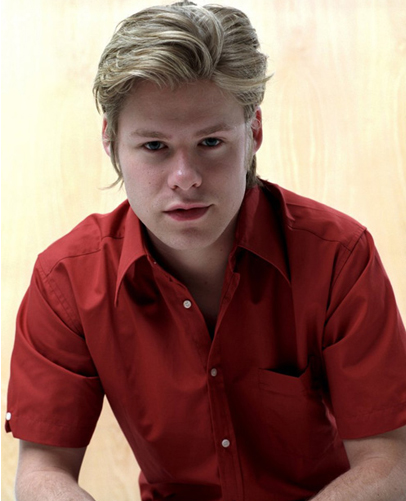
This 'Godot' worth waiting for
STOCKBRIDGE, Mass. -- More than five decades after its Paris premiere, Samuel Beckett's "Waiting for Godot" remains a theatrical line in the sand, separating the mainstream from the avant garde.
If you can make it through "Godot," it seems, you're ready for the wild side.
But "Godot," as evinced by a new production of the play at Berkshire Theatre Festival, is actually pretty straightforward in its own way.
Its subject, perhaps even more than its construction, is what makes it such a landmark piece.
It's about nothing. It literally is a play about waiting. Beckett can't help but make observations and remarks about existence throughout the script, but he never shies away from his purpose either.
Director Anders Cato has plenty of fun with the show, which is just right. Beckett was inspired by silent movie clowns and Cato hews that same path.
As the audience enters the Unicorn a soundtrack (composed by Scott Killian) is already running, and in essence the play has already started. Even speakers in the bathroom swell with the chaotic mix of sound, melody, noise and prerecorded requests to turn off cellphones.
It's jarring and engaging, just like the play.
When the action finally begins it is in a white box of a room (designed by Lee Savage) which contains the essential tree and rock so familiar to fans of the play.
And when it begins, it's an actor's game.
Cato has assembled a wonderful cast, which is spearheaded by David Adkins and Stephen DeRosa as the would-be sad clowns, Vladimir and Estragon.
They have the Chaplin/Keaton shtick down and Cato gives them plenty of bits to play with, right down to classic vaudeville moves with Adkins' hat.
David Schramm plays the intruding Pozzo as loud and brash, and he whips at his menial, Lucky (Randy Harrison) with a vengeance.
Harrison has made a second career of playing unhinged characters at BTF and his first act monologue -- screed would be a better description -- is one of this impressive production's dazzling moments.
It's also unnerving, as so much of this play has always been.
"Godot" also always feels a bit academic but Cato has avoided that trap to a remarkable degree by keeping the laughs running alongside the darkness -- which comes in its purest form with the almost robotic arrival of Cooper Stanton as Godot's messenger, always telling the men that Godot will be there tomorrow.
Cato has long been a best bet at BTF. He offers a mix of precision, caring and passion to works new and old. And here he proves -- again -- that watching a classic doesn't have to feel like attending school.
If you can make it through "Godot," it seems, you're ready for the wild side.
But "Godot," as evinced by a new production of the play at Berkshire Theatre Festival, is actually pretty straightforward in its own way.
Its subject, perhaps even more than its construction, is what makes it such a landmark piece.
It's about nothing. It literally is a play about waiting. Beckett can't help but make observations and remarks about existence throughout the script, but he never shies away from his purpose either.
Director Anders Cato has plenty of fun with the show, which is just right. Beckett was inspired by silent movie clowns and Cato hews that same path.
As the audience enters the Unicorn a soundtrack (composed by Scott Killian) is already running, and in essence the play has already started. Even speakers in the bathroom swell with the chaotic mix of sound, melody, noise and prerecorded requests to turn off cellphones.
It's jarring and engaging, just like the play.
When the action finally begins it is in a white box of a room (designed by Lee Savage) which contains the essential tree and rock so familiar to fans of the play.
And when it begins, it's an actor's game.
Cato has assembled a wonderful cast, which is spearheaded by David Adkins and Stephen DeRosa as the would-be sad clowns, Vladimir and Estragon.
They have the Chaplin/Keaton shtick down and Cato gives them plenty of bits to play with, right down to classic vaudeville moves with Adkins' hat.
David Schramm plays the intruding Pozzo as loud and brash, and he whips at his menial, Lucky (Randy Harrison) with a vengeance.
Harrison has made a second career of playing unhinged characters at BTF and his first act monologue -- screed would be a better description -- is one of this impressive production's dazzling moments.
It's also unnerving, as so much of this play has always been.
"Godot" also always feels a bit academic but Cato has avoided that trap to a remarkable degree by keeping the laughs running alongside the darkness -- which comes in its purest form with the almost robotic arrival of Cooper Stanton as Godot's messenger, always telling the men that Godot will be there tomorrow.
Cato has long been a best bet at BTF. He offers a mix of precision, caring and passion to works new and old. And here he proves -- again -- that watching a classic doesn't have to feel like attending school.
Copyright © 2008 randy-harrison.it | All rights
reserved
Written by Michael Eck - Edited by Marcy
Written by Michael Eck - Edited by Marcy